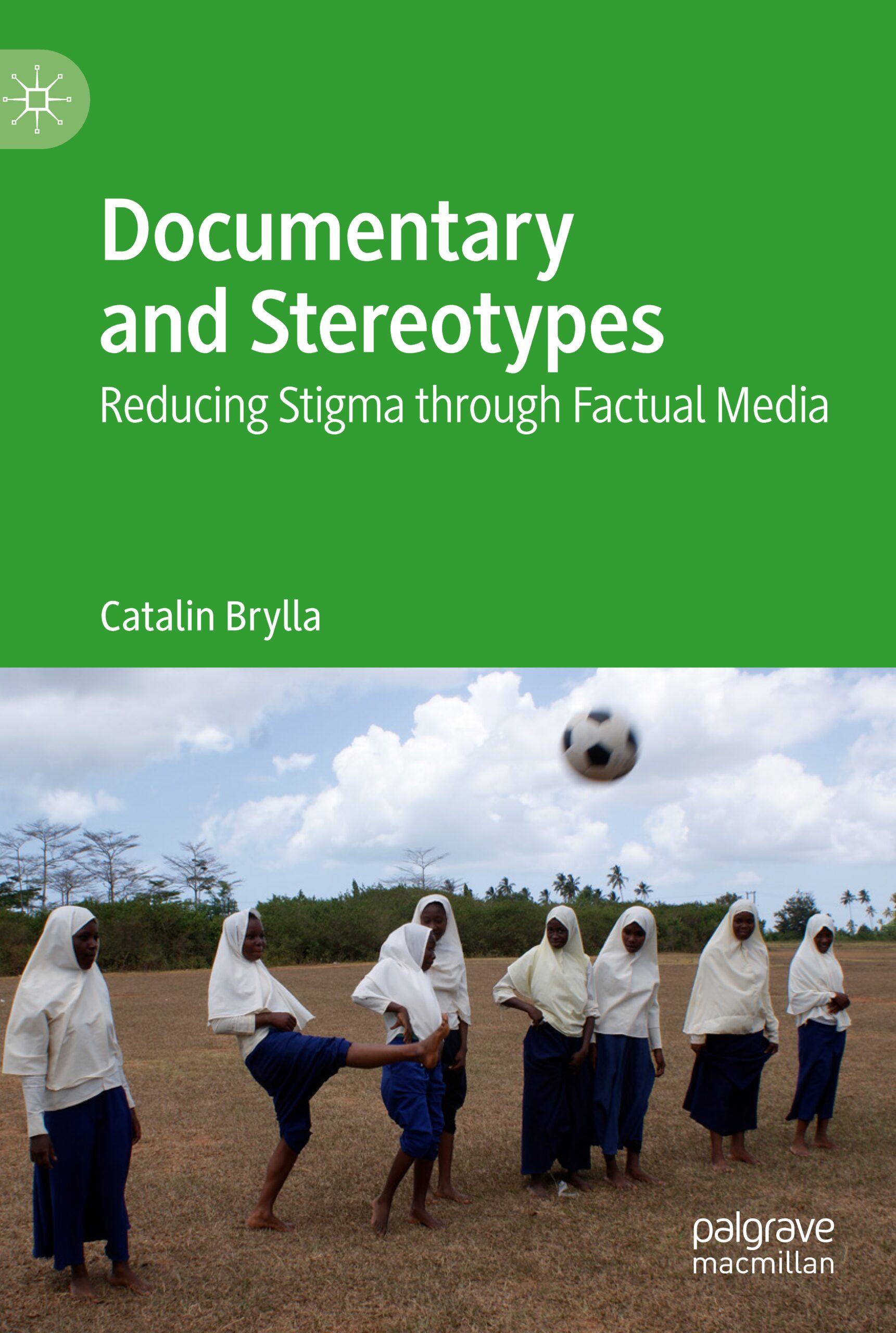
This is a companion website to the book Documentary and Stereotypes – Reducing Stigma through Factual Media by Catalin Brylla. The website introduces the book’s key models and methods in a simplified and accessible manner for tutors, students, scholars, media makers and the general public. It can all be found in the above menu sections STIGMA and REDUCING STIGMA. Please feel free to get in touch with any questions, comments and feedback in the MEDIA AND CONTACT section.
This book studies how social stigma and prejudice can be reduced through factual media, including documentaries, news, reality TV, advertisements and social media videos. It is intended for researchers and media makers who want to increase social inclusion and diversity through strategic on-screen representations. Using models from social psychology, media studies and cultural studies, it explains how harmful social boundaries can be reduced in relation to ethnicity, culture, age, disability, gender, sexual orientation, religion and many other social categories.
The first part explains the function of stereotypes in social perception and cognition, whether we meet a person in real life or watch a TV documentary. The second part establishes a classification system for stigmatising media stereotypes, and it proposes a methodology to analyse these in narrative and audio-visual representations. The third part introduces a framework of methods to reduce stigmatising stereotypes and foster social inclusion. These are based on experiencing the perspective of screen characters and the strategic intersection of multiple social identities.


This book is a tour de force, combining the best and most sophisticated insights from experimental psychology and the social science of prejudice with a powerfully effective discourse analytic approach – exactly what is needed to engage with documentary and film makers to enable them to move beyond stereotypes that stigmatise groups and perpetuate disadvantage. It is intellectual, engaging, practical, eminently sensible, and persuasive.
Dominic Abrams, Professor of Social Psychology, University of Kent
This book is written with clarity and passion. Packed with illustrations and case studies, the writer offers insights and innovative ways of seeing and critiquing representational issues with regards to prejudices of stigmatised groups in non-fiction screen media.
With its interdisciplinary focus, this book is a great contribution to postcolonial studies and has a strong focus on a decolonising agenda that aligns with principles of equity and social justice in documentary film scholarship.
Strongly recommended for like-minded scholars, students and documentary filmmakers who are keen to combine practical strategies for understanding, challenging and reducing stereotypes with their theories and creative practices.
Florence Ayisi, Professor of International Documentary Film, University of South Wales
Dr. Brylla has done the world a great service by providing a thorough, carefully researched, and elegantly explained treatise on the potential of factual media to decrease discriminatory attitudes. At the heart of every major media effects theory is the belief that people learn through consuming media.
Dr. Brylla walks the reader carefully through scholarship in social psychology, sociology, and media studies to explain how stereotypes are formed, transmitted, and—fortunately—combatted. Though scholarly, the book is also practical as it lays out the necessary steps for factual media to reduce stereotypes. I highly recommend this book.
Edward Schiappa, John E. Burchard Professor of the Humanities, Massachusetts Institute of Technology
Brylla’s book combines an original inquiry into the processes of contemporary stereotyping with a sharp analysis of how documentaries work to promote or question them. It breaks important new ground in the closeness of its attention to the variety of routes by which misunderstandings and prejudices become established. This knowledge is then used to recommend ways for media production to work as a positive, corrective force in the circulation of ideas about social identity.
John Corner, Professor in Documentary Studies, University of Leeds
How factual media shapes relationships between viewers and ‘Others’ is a matter of urgent concern for documentary scholars and makers. This original volume explores stereotypes in factual media, from journalism and digital media to documentary film and television, showing how they appeal to, and potentially amplify, deeply held implicit attitudes.
The book is richly interdisciplinary, drawing on scholarship from fields as diverse as psychology, ethics, and media/documentary studies. It is jam packed with case studies and draws on the author’s own experience of documentary production. In Documentary and Stereotypes Brylla makes a compelling argument for the value of cognitive approaches to the study of factual media and provides a clear and practical method for documentarians committed to challenging stigmatising stereotypes in their practice.
Kate Nash, Professor of Media and Communication, University of Leeds; Co-Editor of Studies in Documentary Film
This perceptive and well-argued book develops effective new models for analyzing and reducing harmful stereotypes in nonfiction media. As both an experienced documentary filmmaker and practiced scholar, author Catalin Brylla is exactly the right person to accomplish this task. This book is not only a notable expansion of documentary film theory and theory of spectatorship, but also provides concrete strategies for documentary filmmakers.
Carl Plantinga, Professor of Film and Media Studies, Calvin College; Author of Rhetoric and Representation in Nonfiction Film